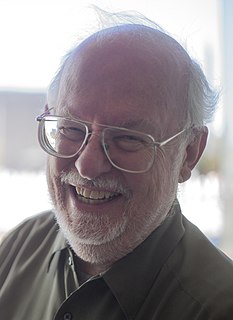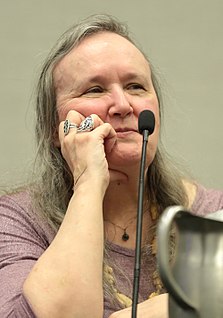A Quote by W. H. Auden
Between the ages of twenty and forty we are engaged in the process of discovering who we are, which involves learning the differences between accidental limitations which it is our duty to outgrow and the necessary limitations of our nature beyond which we cannot trespass with impunity.
Related Quotes
As with any other great force of nature, there is both glory and danger in the stories we tell ourselves. Some are toxic and keep our problems festering. Others are tonic and bring us beyond the limitations of our previous history. To be in a life of our own definition, we must be able to discover which stories we are following and determine which ones help us grow the most interesting possibilities.
Imagine a world in which we saw beyond the lines that divide us, and celebrated our differences, instead of hiding from them. Imagine a world in which we finally recognized that, fundamentally, we are all the same. And imagine if we allowed that new understanding to build relations between people and between nations.
Our intellectual powers are rather geared to master static relations and that our powers to visualize processes evolving in time are relatively poorly developed. For that reason we should do (as wise programmers aware of our limitations) our utmost to shorten the conceptual gap between the static program and the dynamic process, to make the correspondence between the program (spread out in text space) and the process (spread out in time) as trivial as possible.
People between twenty and forty are not sympathetic. The child has the capacity to do but it can't know. It only knows when it is no longer able to do -after forty. Between twenty and forty the will of the child to do gets stronger, more dangerous, but it has not begun to learn to know yet. Since his capacity to do is forced into channels of evil through environment and pressures, man is strong before he is moral. The world's anguish is caused by people between twenty and forty.
Time, which measures everything in our idea, and is often deficient to our schemes, is to nature endless and as nothing; it cannot limit that by which alone it had existence; and as the natural course of time, which to us seems infinite, cannot be bounded by any operation that may have an end, the progress of things upon this globe, that is, the course of nature, cannot be limited by time, which must proceed in a continual succession.
We may exist in all universes, but 'hear' only one because of our limitations, the valve of our desires, our practical, physical needs. All is vibration, with nothing vibrating across no distance whatsoever. All is music. A universe, a world, is just one long difficult song. The difference between worlds is the difference between songs.
If the blessings of our political and social condition have not been too highly estimated, we cannot well overrate the responsibility and duty which they impose upon us. We hold these institutions of government, religion, and learning, to be transmitted, as well as enjoyed. We are in the line of conveyance, through which whatever has been obtained by the spirit and efforts of our ancestors is to be communicated to our children.
1) Différance is the systematic play of differences, of the traces of differences, of the spacing by means of which elements are related to each other. This spacing is the simultaneously active and passive (the a of différance indicates this indecision as concerns activity and passivity, that which cannot be governed by or distributed between the terms of this opposition) production of the intervals without which the "full" terms would not signify, would not function.
The process of growth is, it seems, the art of falling down. Growth is measured by the gentleness and awareness with which we once again pick ourselves up, the lightness with which we dust ourselves off, the openness with which we continue and take the next unknown step, beyond our edge, beyond our holding, into the remarkable mystery of being.
If we feel that any habit or pursuit, harmless in itself, is keeping us from God and sinking us deeper in the things of earth; if we find that things which others can do with impunity are for us the occasion of falling, then abstinence is our only course. Abstinence alone can recover for us the real value of what should have been for our help but which has been an occasion of falling. ... It is necessary that we should steadily resolve to give up anything that comes between ourselves and God.







































